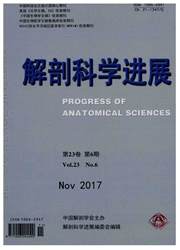

 中文摘要:
中文摘要:
目的研究小檗碱的慢性毒性反应。方法在急性毒性试验中,给予大鼠不同小檗碱剂量测试小檗碱的半数致死量(LD50)和最大耐受剂量。慢性毒性试验中,给予大鼠0.25,0.5,1g/(kg·d)连续给药12周,然后观察大鼠生长发育、血液学、生化、脏器指数和脏器形态学变化。结果急性毒性试验中,大鼠给予最大灌胃剂量3000mg/kg后未见大鼠死亡,半数致死量和最大耐受量未检出。慢性毒性试验中,与对照组大鼠相比,除中、高剂量组大鼠存在稀便现象外,各剂量组大鼠在行为学,血液学、生化、脏器指数等方面均无显著差异。结论小檗碱对大鼠没有明显的急慢性毒性,可连续安全口服。
 英文摘要:
英文摘要:
Objective The purpose of this paper is to study the chronic toxicity of Berberine. Methods In the acute toxicity test, rats were given different doses of berberine to test the LD50 and maximum tolerated dose. For the chronic toxicity test, rats were given 0.25, 0.5, 1g /(kg·d) Berberine administered continuously for 12 weeks, and then the growth and development of rats, hematology, biochemistry, organ coefficients and morphological changes of organs were observed. Results In acute toxicity test, no rats were found death after given a maximum perfusion gastric dose 3000mg/kg Berberine, with no half lethal dose and the maximum tolerance being detected. For the chronic toxicity test, compared with the control rats, in addition to 0.5g/kg and 1g/kg groups rats with loose bowels phenomenon, there was no significant difference in ethology, hematology, biochemistry, organ coefficients for each dose group of rat. Conclusion Berberine has no acute toxicity and chronic toxicity, and no potential adverse for rats for long-time use.
 同期刊论文项目
同期刊论文项目
 同项目期刊论文
同项目期刊论文
 期刊信息
期刊信息
